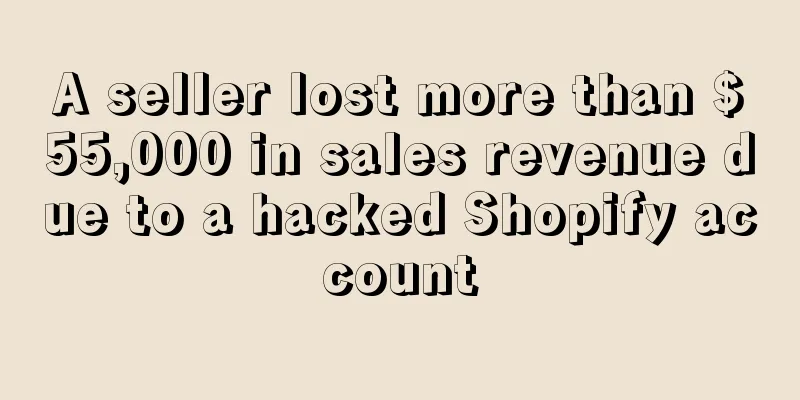Suspected of advertising fraud! A tree was exposed by Time Magazine

|
In addition to the major blow suffered by Amazon sellers, many independent website sellers were also implicated. According to the data revealed by Time magazine, Youkeshu was suspected of independent website advertising fraud.
Youkeshu was exposed for suspected independent website advertising fraud
When Time magazine was investigating fraudulent websites, it discovered a company that held the domain name of an allegedly fraudulent e-commerce website, which was an affiliate of Shenzhen cross-border e-commerce giant Youkeshu.
According to the reporter's investigation, if you dig deeper, you will find that most of these e-commerce websites suspected of fraud have the same IP address, customer service email address, phone number and even the warehouse shipping address in mainland China.
The investigation was quickly unravelled, and it was discovered that there was an open connection between the fraud network and two legitimate Chinese companies, namely Tianze Information and its subsidiary Youkeshu.
Public information shows that Youkeshu is the largest shareholder of Shenzhen Guiguyun Software Technology Co., Ltd. (which owns the domain name Kokoerp.com of many fraudulent websites ) and Duotongguang E-Commerce Co., Ltd. (a shell company).
Email addresses and internal portals link the Youkeshu and Kokoerp domains together. Some victims of the Kokoerp scam reported receiving boxes with a YKS (a symbol for a tree) on the return label.
American consumers frequently encounter advertising scams
The story began in October last year, when an American consumer said that advertisements for sea glass Christmas trees appeared many times on his Facebook, attracting his attention. After the consumer clicked on the advertisement to make a purchase, he received a small wooden Christmas tree that was completely different from the one in the picture.
Similarly, someone put photos of other sellers’ wood craft products on Etsy in website and social media advertising campaigns. People were attracted by the pictures and chose to buy the product, but all they received was one dollar worth of garbage, like tiny plastic cones and ugly wooden gnomes.
When consumers want a refund, the shipping fee is often many times higher than the product price. At this time, many consumers choose to suffer the loss in silence. In addition, according to a report by Time magazine, advertising fraud is not an isolated case, and Tianze Information is also one of the beneficiaries.
Although this incident happened at the end of 2020, it is still fermenting as of now! There is a tree Advertising fraud Time Magazine |
<<: Can't we survive without Amazon?
Recommend
What is Spring? Spring Review, Features
Spring was founded in New York in 2013 as an e-co...
Amazon is the top choice for students, with home decoration being the most popular
As one of the most popular e-commerce platforms i...
After launching Choice, AliExpress Korea's download volume ranked first again
AliExpress recently topped the list of Korean sho...
What is PPC.tools? PPC.tools Review, Features
<span data-docs-delta="[[20,{"gallery"...
What is Media.Monks? Media.Monks Review, Features
The Privacy Sandbox Everyone Needs, Media.Monks s...
Simplify the seller return process! Amazon reaches cooperation with third-party platforms
Exchange of goods can be said to be a common occu...
180 accounts of Shenzhen sellers were blocked and 140 million yuan of payment was frozen
Some time ago, many big sellers in the industry w...
Amazon recalls tens of thousands of mattresses due to self-operated brands
Product recalls are not uncommon, and many of the...
What is SciAds? SciAds Review, Features
SciAds is an Amazon third-party tool that provide...
There are big changes at Amazon’s front desk again!
Before Prime Day, undercurrents began to surge on...
What is BookCloud? BookCloud Review, Features
BookCloud is a management system that allows user...
Anker ranks second! The top 100 cross-border brands are released
This list is mainly for native cross-border e-com...
What is Yunku Overseas Warehouse? Yunku Overseas Warehouse Review, Features
Guangzhou Yunku Overseas Warehouse Logistics Co., ...
Americans will spend $21.6 billion on Easter, 35% of them choose to shop online
With new economic stimulus measures in place, vac...
What is Casper Mattresses? Casper Mattresses Review, Features
Founded in 2014, Casper Mattresses is a DTC home ...









